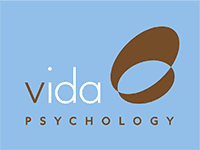
15 Mar How to get a good night Sleep: Tired of not sleeping?
Our lives are so busy, so it is important for our bodies and minds to restore on a daily basis. We do this in different ways, one of them is through sleep. For some people sleep is something that happens naturally, but for others it can be a struggle, an unpleasant and anxiety provoking and even depressive experience.
Sleep is crucial in allowing our bodies to restore themselves, without it our bodies are not able to repair themselves and the effects can have serious implications on our health. Some of the effects of lack of sleep are mood swings, irritability, depression, anxiety, diabetes type 2, cognitive impairment, immune deficiency (being more susceptible to colds and flu), reduced ability to focus, concentrate and decision making, cardiovascular disease and hypertension.
Sleep disturbances are unfortunately very common. They may stem from circumstances such as becoming a parent and having to tend to children throughout the night, being a shift worker, worrying about work, relationships or any other personal circumstances or simply choosing to stay out late. The problem arises when those circumstances change but our body clocks continue to be out of sync as a poor sleep habit has already been created.
Unfortunately a commonly used treatment for sleep disturbances is sleeping tablets. These however, do not treat the problem and in time our bodies become tolerant and require either a higher dose or a different sleeping tablet altogether. Sleeping tablets only make the problem worse.
Following are some tips to ensure you have a better night sleep:
1. Ensure your bedroom promotes sleep. You do this by making sure your bed is comfortable, you are not too hot or too cold, the room is dark enough and if possible keep noise levels down.
2. Develop a sleep routine. You can do this by engaging on activities to unwind. This is important as you will be teaching your brain it is time to rest.
3. Recognise signs of tiredness and go to be straight away. This is very important as you are far more likely to fall faster and stay sleep. Thus go to bed only and only when are very tired.
4. Don’t do any work or study for at least two hours prior to going to bed.
5. Make sure your bed is only used for sleeping. Don’t watch television or do any work in bed. This will assist your brain in knowing and making the connection that bed is for sleeping and nothing else. However, it is Ok to read a book or listen to relaxing music or relaxation strategies as long as it not for longer than 30 minutes.
6. Be mindful of things such as caffeine (coffee, tea, chocolate and cola drinks), alcohol, nicotine and sugar as they can significantly impact on quality of sleep. Ideally if you can avoid them altogether until your sleep is in check, otherwise, try not to consume them after 2pm.
7. Exercise helps promote sleep. The more tired you are, the more likely you are to fall sleep and stay sleep. Generally try not to exercise after 7:00pm as your body will produce adrenaline which is likely to keep you awake.
8. Stop watching your clock during the night. The more you do this, the more likely you are to stress about not being able to sleep and thus less likely to fall sleep.
9. If you find you are not falling sleep after lying in bed for about 30 minutes, get up, go to a different room and do something boring. Try to avoid turning bright lights on. Once you can recognise signs of tiredness, go back to bed. Unfortunately, this may mean needing to get up a few times in the night. It is important to note this is the case if you are thinking and worrying about things. If you are relaxed, it is ok to stay in bed.
10. Getting up at the same time every day will regulate your clock. This will result in getting sleepier earlier. It is ok to sleep in on weekends as long as it not longer than 60 minutes.
11. Learn to manage worry. You can do this in various ways. One is to allocate a ‘worry/ problem solving time’ where you write down your worries and what you can do to solve them. If you wake up worrying about a particular problem, remind yourself “I will worry about it tomorrow” or “it’s on the list”. By doing this you are training your brain in knowing there is a place and time for everything, even worrying and that the middle of the night is not the time for it.
12. Learn to relax. You can discuss relaxation techniques with your Psychologist in therapy. Progressive muscle relaxation technique is a popular one. In this technique you become aware of your tense muscles and learn how to relax them in a gradual manner.
13. Introduce figs and dates in your diet as they can help with sleep just like having a glass of warm milk when you are having difficulties falling sleep.
14. Napping during the day can negatively impact your sleep. So, try to stay awake until it is time to sleep.
It is important to keep in mind you can always work on developing good sleep habits. It is never too late to start. You need to be prepared to consistently apply techniques for at least 6 weeks. Once you find your sleep has improved and you are happy you are getting a better night sleep, you can be more flexible.
At Vida Psychology we have helped many people experiencing sleep difficulties. If you would like to begin having a good night sleep, don’t put it off and contact us on 9328 8200 or email us at appointment@vidapsychology.com.au
Adapted from Sleep Better Without Drugs: A Proven 4-6 Week Self-help Program Using Cognitive Behavioral Therapy-CBT (Dr David Morawetz, 2014)


Sorry, the comment form is closed at this time.